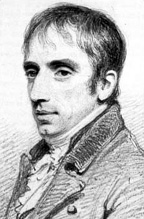Romanticizing
 Somehow I wound up doing two full semesters on the Romantic poets in college—an undergrad seminar junior year with a sweet but painfully dull professor, whose dry, monotone delivery drained all blood and passion from those intense and emotional writers we’ve dubbed the Romantics; and a graduate-level seminar to meet part of the lit requirement for my MFA. That course was taught by a first-year professor, a woman as intense and earnest as the poets she alternately lauded and scorned. She didn’t like one of my papers; it seemed to annoy her that I preferred Keats’s letters over his poems. But those letters! Crackling with energy and personality, unbridled, sometimes incoherent. His poems felt stilted to me, after I got a taste of Keats Unplugged in the correspondence.
Somehow I wound up doing two full semesters on the Romantic poets in college—an undergrad seminar junior year with a sweet but painfully dull professor, whose dry, monotone delivery drained all blood and passion from those intense and emotional writers we’ve dubbed the Romantics; and a graduate-level seminar to meet part of the lit requirement for my MFA. That course was taught by a first-year professor, a woman as intense and earnest as the poets she alternately lauded and scorned. She didn’t like one of my papers; it seemed to annoy her that I preferred Keats’s letters over his poems. But those letters! Crackling with energy and personality, unbridled, sometimes incoherent. His poems felt stilted to me, after I got a taste of Keats Unplugged in the correspondence.
I also liked (like) Coleridge better than Wordsworth—which is not to say I don’t appreciate William; no one beats him for musings-while-hiking—but, well, this was a professor who dedicated nearly a month to the Prelude. This could only be accomplished by whisking past Blake, ignoring poor auld Robby Burns entirely (heresy in my book), and running out of semester before Byron’s brow could get well and truly fevered.
Come to think of it, perhaps the course wanted to be a seminar in Wordsworth, with other fellows thrown in for context. I don’t know if I’d have signed up, in that case—again, no slight meant against earnest William; but I must have my “Frost at Midnight”—and I’m glad I did sign up, because one thing this professor accomplished was to reimbue the Romantics with the vitality my first prof had siphoned away. Prof #2 had Opinions; it seemed almost to hurt her when you disagreed. Today she would be a blogger, banging away at the keyboard late into the night because Someone Is Wrong on the Internet.
I crash-coursed my older daughters in the Romantics this morning. A small victory for Prof #2: we began with Wordsworth. But I must confess that he didn’t really come alive for me (apart from certain heavily underscored and annotated passages in my copy of the Prelude, which, after all, did resonate stirringly for the young poet-in-training I was) until years later when I read his sister Dorothy’s journal of a tour of Scotland she made with brother William and friend Coleridge. Dorothy’s travelogue was an important resource for me in the writing of my Martha books: she spent a lot of time describing the scenery and residents of the neighborhood in which I planted Martha’s fictional village. She had wry things to say about her brother as a traveling companion; he sometimes irritated her, as I expect brothers will do, but she was exceedingly fond of him. Coleridge, as I recall, was the difficult party: he liked to sleep late, and Dorothy preferred to be up-and-out early.
If I am recalling correctly. It’s been a long time.
